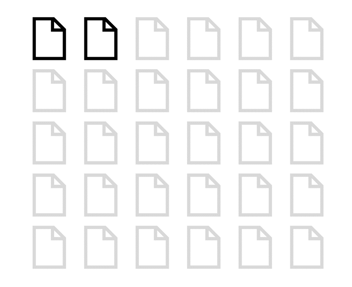
Earlier this week I did a blog post (here) about contract templates that a company is offering its customers. And recently another company announced plans to do the same sort of thing.
I'm not surprised that people are taking advantage of opportunities to feed the garbage-in-garbage-out beast that is contracts legaltech. As a public service, let me suggest how you can distinguish between good and not-so-good templates of this sort. (Here's my new term for this kind of offering—public contract template, meaning a contract template someone is offering, for free or for money, to anyone who wants to use it.)
Does the template reflect guidelines for contract language?
Ideally, a contract would be clear and concise in how it says whatever it says. That should certainly be the case with a template that's being offered to others instead of just being used within an organization.
But usually, that isn’t the case. See my analysis of Practical Law's mutual confidentiality agreement template (here). And see my post from earlier this week (here). For the heck of it, yesterday I squinted at a grainy screenshot of one of those standard-form confidentiality agreement templates, and it featured no shortage of suboptimal usages. And earlier this year I had a close look at one of the American Institute of Architects templates. It was weird, and not in a good way. (I expect that at some point I'll write about that.)
So in my experience, it's likely that in terms of how it says what it says, any public template will range from "exasperated shrug" to "gnash your teeth." There are exceptions. For example, I looked at yet another standard-form confidentiality agreement template. Although I'd make some changes, it was broadly respectable in how it says what it says.
That the quality of the drafting on display in public templates is a matter of potluck is a function of the copy-and-paste system, which makes dysfunction hard to avoid. There's an alternative—say that your public template follows the guidelines in A Manual of Style for Contract Drafting. But that would require discipline, and quality control, and taking a low-key stand. So for now the only public templates that meet that standard are Adams Contracts' templates.
Does the template reflect the input of experts?
A public template will be reliable only if experts have contributed to it. But what makes an expert is a little fluid. Here's my standard: Someone isn't an expert in a given kind of transaction just because they do a lot of them. Instead, expertise requires a broader perspective—namely some sort of practical scholarship.
Experts can be a cussed bunch. For example, this contract-language expert likes getting compensated for his expertise. Some template initiatives might have to do without experts.
But some template initiatives have decided they don't need experts—they're under the illusion that they can crowdsource their way to quality. That's consistent with a broader society disdain for expertise.
Does the template reflect strong editorial control?
You can't count on experts to be good at incorporating their expertise in optimal contract language. And if you have a bunch of experts, each with their own private guidelines for contract language, it's unlikely they'll generate consistent contract language. That's why strong editorial control is essential. That requires more than command of the building blocks of contract language—you must be a prose architect, with decent semantic acuity.
Is the template customizable?
Anyone creating a public template must choose between doing the standard-forms thing (one size fits all, with limited options for customization) or offering more plentiful customization.
The standard-forms approach work best for high-volume deals that can do with minimal customization. But plentiful customization can work for that kind of deal too, if enough is at stake. That's why, despite all the standard-form confidentiality agreements out there, Adams Contracts has a confidentiality agreement template that offers a lot of customization. (See this blog post for more about that.)
What does it take for someone to make the leap of faith required to rely on a public template?
Contracts matter, so when someone uses a public template, to some extent they're putting the fate of their transaction in someone else's hands. How do you give someone the confidence to make that leap of faith?
Some public-template initiatives offer puffery. For example, "curated by industry experts" and—a low bar—"drafted and maintained by attorneys."
Editorial boards are a sensible idea. I think of an editorial board as a brains trust that helps with quality control and strategy. But some template initiatives use editorial boards to convince us to make that leap of faith. It can get a little silly, as some seem to think that the bigger your editorial board, the more confidence it will inspire. It doesn't have that effect on me—once your editorial board has more than a dozen members, I assume that any sense of responsibility is spread so thin as to be meaningless. And if you have a jumbo-size editorial board, it won't be packed with stars of the contracts world.
I would be happy to take a leap of faith if a public-template initiative does this:
- follows a set of guidelines for clear and concise contract language
- reflects the input of experts
- reflects strong editorial control
- offers whichever option I'm looking for—a standard-form template or plentiful customization
- projects a no-bullshit sense of competence and commitment


